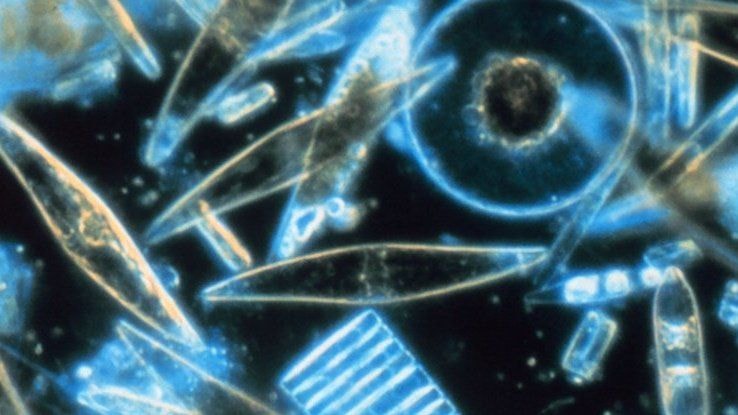Using genetically modified algae as a cancer treatment.
Scientists have successfully created a genetically modified microalgae that can kill 90% of cancer cells without harming other healthy cells.
The treatment has been shown to be effective for tumors in mice without affecting other parts of the body.
 |
Developing drugs that can directly attack cancer cells in the body without affecting other parts of the body is a major challenge in cancer treatment. For example, chemotherapy can cause side effects on the patient's hair, fingernails, and even bone marrow.
A new trend is to create drugs based on nanoparticles, which can be introduced into the body to attack cancer cells. However, producing these nanoparticles is very expensive and requires industrial chemicals, such as hydrofluoric acid.
However, a team of scientists from Australia and Germany has now genetically modified a type of diatom to synthesize nanoparticles for this purpose.
"By genetically modifying the diatoms, we were able to create antibodies on their surface," said Nico Voelcker, the lead researcher and an expert in nanopharmaceuticals.
Diatom antibody nanoparticles only bind to molecules found within cancer cells, where they release the drug. This aligns with the researchers' desired goal.
"More investment is needed in developing drug delivery systems that are naturally occurring, biocompatible, and biodegradable," the study's authors wrote in Nature Communications.
These tiny diatoms meet the above criteria and require almost only water and light to grow. By selecting the right antibodies, algal nanoparticles can be easily targeted to specific cancer cells.
"Although still in its early stages, this biotechnology-based, renewable material drug delivery system has great potential to treat solid tumors, including brain tumors that are currently untreatable," Voelcker said.
According to vietnamnet
| RELATED NEWS |
|---|



